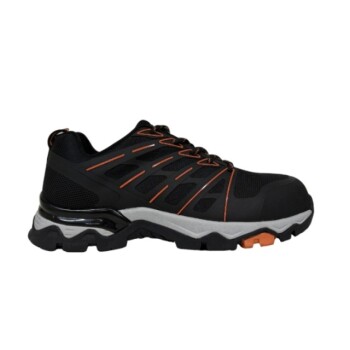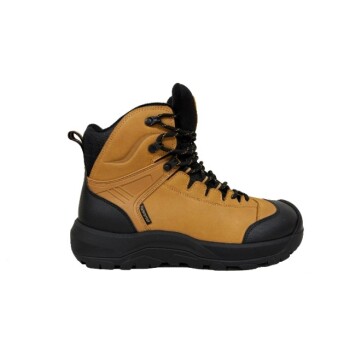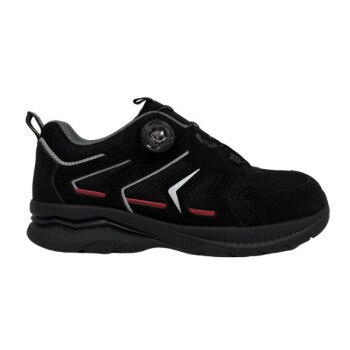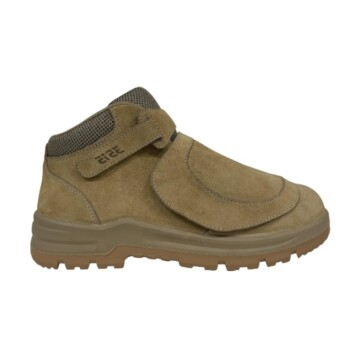For nurses, the best shoe options are either supportive clogs or high-quality athletic sneakers. The ideal choice must be lightweight, fit securely, and provide exceptional shock absorption to combat the physical demands of long hours spent on hard hospital floors.
The search for the perfect nursing shoe isn't about a specific brand or style. It's about finding a professional tool engineered to reduce physical stress, prevent foot and leg fatigue, and support your well-being through demanding shifts.

The Core Principles of a Nurse's Shoe
To understand which shoe is best, we must first define the essential features required for the job. These are the non-negotiable elements that separate adequate footwear from a genuine professional asset.
Unwavering Support and Stability
A nurse's shoe must provide a stable foundation. This means firm arch support to prevent conditions like plantar fasciitis and a structured heel cup to keep your foot securely in place.
While soft cushioning feels good initially, a sole that is too flimsy can lead to foot fatigue and pain over a 12-hour shift.
Superior Shock Absorption
Hospital floors are unforgiving. Excellent shock absorption is critical to dissipate the impact of thousands of steps, protecting your joints in your feet, ankles, knees, and even your back.
This feature directly reduces the cumulative stress that builds up during a long workday.
Lightweight Construction
Every ounce matters when you are constantly in motion. A lightweight shoe reduces the energy you expend with each step, which significantly combats leg fatigue by the end of your shift.
The Critical Role of a Proper Fit
A well-fitting shoe is essential for both comfort and safety. Your footwear should be snug enough to prevent your foot from sliding, which can cause blisters, but have enough room in the toe box for your toes to splay naturally.
Evaluating the Top Contenders: Clogs vs. Sneakers
The two most common and effective choices for nurses are clogs and athletic shoes. Each offers a distinct set of advantages.
The Case for Clogs
Clogs are a classic choice in the medical field for a reason. They offer a unique combination of firm support and a rocker-bottom sole that can ease the strain of walking.
They are also incredibly durable and often made from materials that are easy to wipe down and sanitize, a crucial feature in a hospital environment.
The Case for Athletic Shoes (Sneakers)
High-quality running or walking shoes provide excellent cushioning and a familiar, broken-in feel right out of the box.
Their design is centered around shock absorption and energy return, making them a very comfortable option for nurses who cover a lot of ground during their shifts.
Understanding the Trade-offs
Neither option is perfect for everyone. Choosing the right shoe means understanding the potential downsides of each style.
The Sneaker's Potential Weakness
While sneakers excel in cushioning, many consumer-grade models lack the rigid sole support needed for prolonged standing. Over time, their soft midsoles can compress, diminishing their supportive qualities faster than a purpose-built clog.
The Clog's Adjustment Period
The firm support and unique fit of clogs are not for everyone and can require a brief adjustment period. Some find them less flexible than a traditional sneaker.
The Non-Negotiable: Safety
Regardless of style, any shoe worn in a clinical setting must have a slip-resistant outsole to prevent falls on wet surfaces. They should also feature a closed-toe design to protect against spills and dropped equipment.
Making the Right Choice for Your Shift
Your personal comfort and specific needs should guide your final decision.
- If your primary focus is maximum arch support and easy cleaning: Clogs specifically designed for medical professionals are likely your best starting point.
- If your primary focus is immediate comfort and shock-absorbing cushion: A high-quality running or walking sneaker with proven support is an excellent choice.
- If you experience frequent foot or leg pain: Prioritize a shoe with exceptional shock absorption and a firm, supportive sole, whether it is a clog or a sneaker.
Investing in proper footwear is a direct investment in your own health and ability to provide the best care.
Summary Table:
| Feature | Clogs | Athletic Sneakers |
|---|---|---|
| Primary Benefit | Firm arch support, easy to clean | Superior cushioning & shock absorption |
| Best For | Prolonged standing, stability | High mobility, all-day comfort |
| Consideration | May require an adjustment period | Softer soles may lack long-term support |
| Safety Must-Have | Slip-resistant, closed-toe | Slip-resistant, closed-toe |
As a large-scale manufacturer, 3515 produces a comprehensive range of professional footwear for distributors, brand owners, and bulk clients. Whether you need durable, supportive clogs or comfortable, shock-absorbing sneakers for the healthcare sector, our production capabilities cover all types of shoes and boots designed for long shifts. Let us help you provide the best footwear solutions for medical professionals. Contact our team today to discuss your manufacturing needs!
Visual Guide
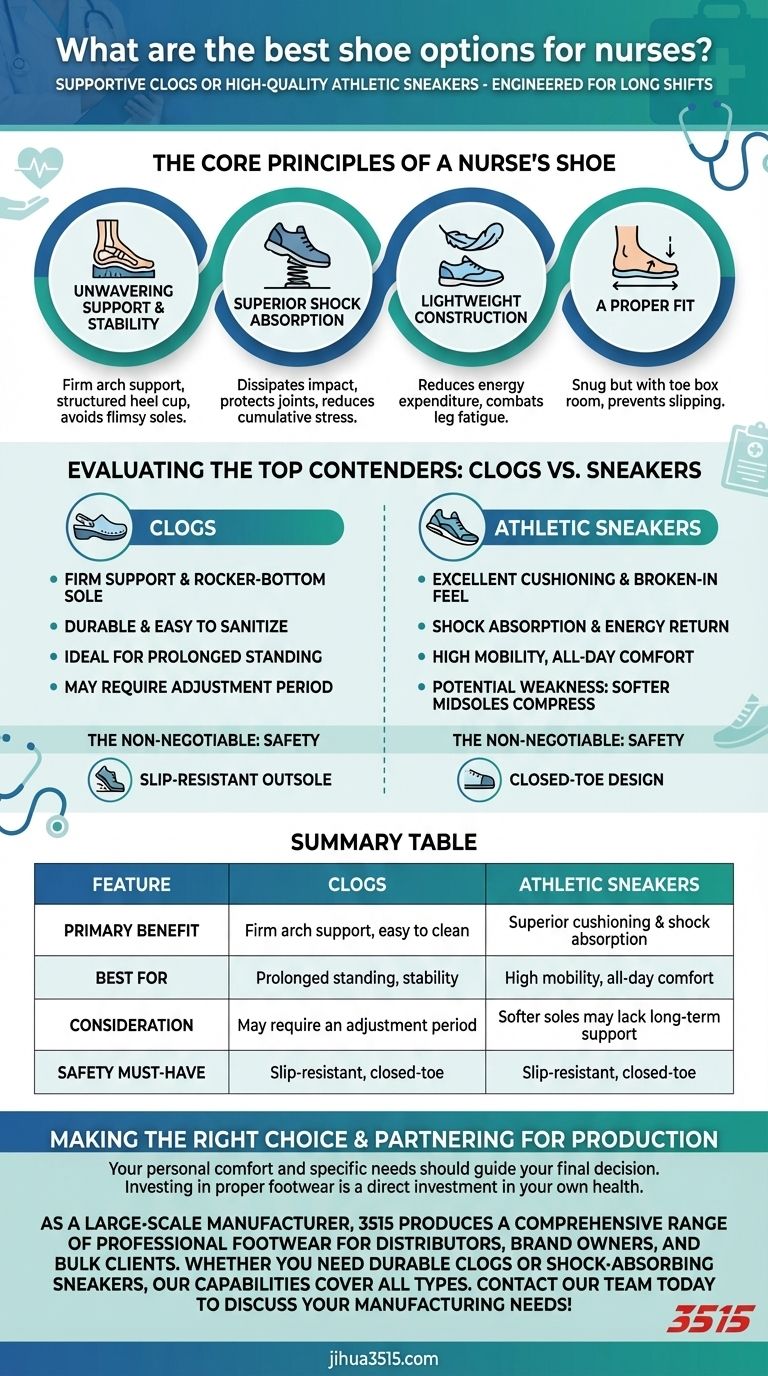
Related Products
- Safety Footwear Wholesale Manufacturer for Custom OEM/ODM Production
- Wholesale Safety Footwear Manufacturer for Bulk & Custom OEM Orders
- Wholesale Durable Breathable Safety Boots Custom OEM Manufacturer
- Premium KPU Injection Athletic Style Safety Shoes
- Customizable Anti-Smash Safety Boots for Wholesale & Private Label Manufacturing
People Also Ask
- What are vulcanized shoes and what are their key characteristics? A Guide to Flexible, Grippy Footwear
- What are the components of a trail running shoe? A Guide to Grip, Protection, and Stability
- What role does a Convolutional Neural Network (CNN) play in sneaker design? Unlock Data-Driven Visual Feature Extraction
- What are the technical advantages of integrating a mini GPS tracker into smart shoes for personal safety applications? Get Discrete Protection & Rapid Response
- How does shoe height affect skate performance? Find Your Perfect Balance of Mobility & Support
- What tips should be followed when wearing sneakers in a professional setting? Master Office Style with Confidence
- What are the key characteristics of sustainable sneakers? Build Eco-Friendly & Durable Footwear
- Are there specific shoes for street/transition skateboarding? The Key Features for Superior Board Control



